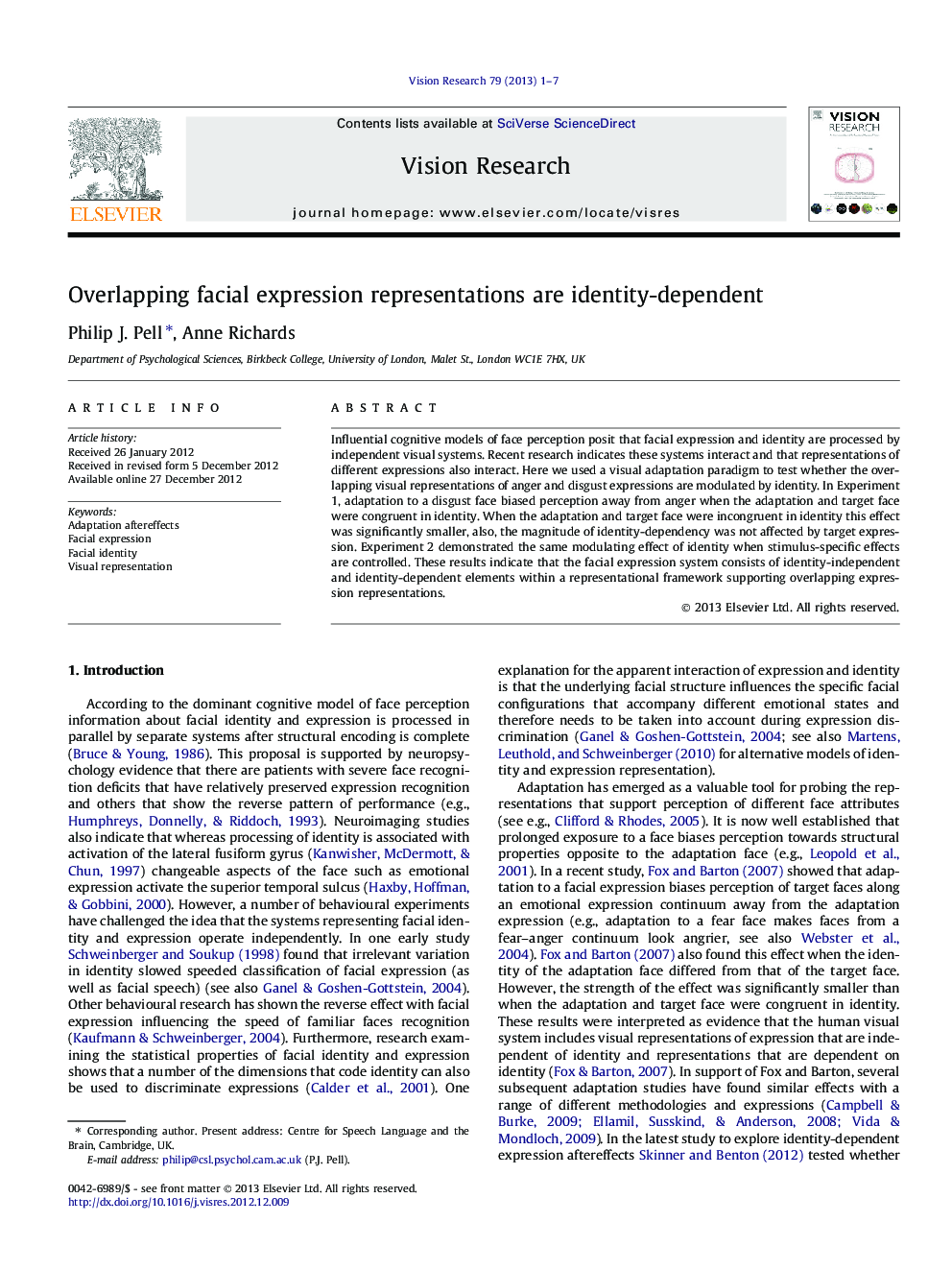| Article ID | Journal | Published Year | Pages | File Type |
|---|---|---|---|---|
| 4033841 | Vision Research | 2013 | 7 Pages |
Influential cognitive models of face perception posit that facial expression and identity are processed by independent visual systems. Recent research indicates these systems interact and that representations of different expressions also interact. Here we used a visual adaptation paradigm to test whether the overlapping visual representations of anger and disgust expressions are modulated by identity. In Experiment 1, adaptation to a disgust face biased perception away from anger when the adaptation and target face were congruent in identity. When the adaptation and target face were incongruent in identity this effect was significantly smaller, also, the magnitude of identity-dependency was not affected by target expression. Experiment 2 demonstrated the same modulating effect of identity when stimulus-specific effects are controlled. These results indicate that the facial expression system consists of identity-independent and identity-dependent elements within a representational framework supporting overlapping expression representations.
► Cross-emotion adaptation between disgust and anger was modulated by identity. ► The effect of identity was constant across target faces. ► Controlling for stimulus-specific effects did not abolish identity effects.
